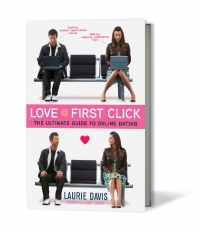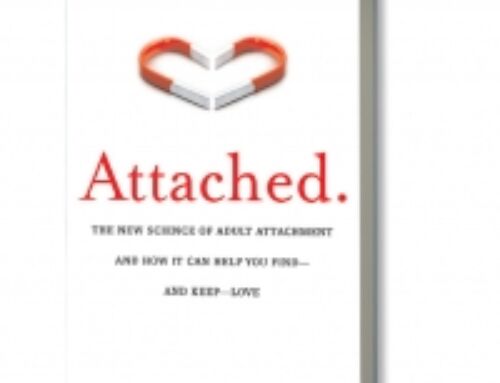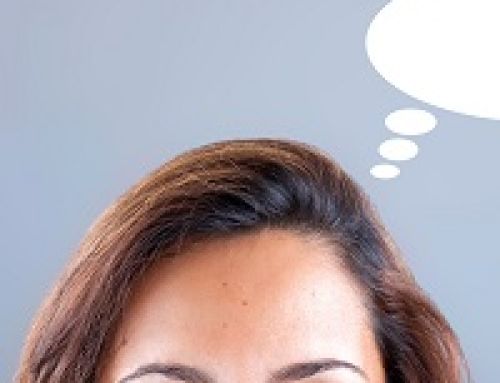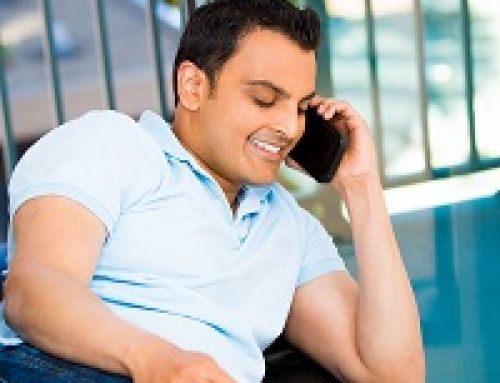Laurie Davis Interview – Love @ First Click
“Love @ First Click”
Jasbina Ahluwalia interviews Laurie Davis
Jasbina speaks with acclaimed author Laurie Davis about themes from her book Love @ First Click: The Ultimate Guide to Online Dating.. Learn more about her work at http://www.eflirtexpert.com/team/.
Laurie Davis is the author of Love @ First Click: The Ultimate Guide to Online Dating.
Laurie has been featured in over 200 international media outlets including Entrepreneur Magazine, The New York Times, Good Morning America, Forbes, Men’s Health, Women’s Health, Mashable and The Washington Post.
She’s also a contributor to The Huffington Post, YourTango and CNBC, among others.
_____
[More from Jasbina] —> [VIDEO] Intersections Match by Jasbina – From The Founder
—> [VIDEO] Is It Bad To Have A List Of Must-Haves In Men?
_____
(00:48): Hello everyone and welcome to Intersections Match’s Talk Radio, a monthly holistic lifestyle show focused on the continual evolution into the best versions of our authentic selves. This is Jasbina, your host. I’m the Founder of Intersections Match, the only elite national personalized matchmaking company focused on singles of South Asian descent nationwide in the US. As a dating coach and matchmaker, I’m a big believer in keeping all avenues open.
Today’s discussion will be helpful to those of you out there who have tried, are trying or are thinking of trying online dating. I’d like to welcome our guest today, Laurie Davis. Laurie is the Founder of eFlirt Expert, an online dating consultancy, as well as the author of the book that we’ll be discussing on today’s show. It is entitled Love @ First Click: The Ultimate Guide to Online Dating. Welcome, Laurie.
Laurie Davis
(1:44): Hi, how are you?
(1:47): I’m doing great. I’m excited to have you on. What led you to write the book, Love @ First Click, in the first place?
Laurie Davis
(1:57): I’ve worked with so many online daters over the years. I started my business four years ago. We just recently worked on our thousandth profile. I’ve worked personally with so many daters one-on-one. The thing that I find is that we’re living in an increasingly digital world. There are really no guidelines.
The technology for online dating is so nuanced. It comes down to the things that you search for, how you search and what you say in your messages that will get more clicks. It’s a very unique part of the dating landscape today. I knew that there needed to be a guide to online dating, so I wrote it.
(2:48): You have a whole chapter dedicated to the all-important online dating photo. Can you give one or two of your top tips for women? We have a mixed audience here. Can you also give one or two of your top tips for men with respect to that all-important online picture?
Laurie Davis
(3:11): As I’m sure that you noticed when you were reading the book, there are very few times where I call out men versus women. The way that men and women view profiles is different but the same sorts of things work for both genders and different sexual orientations. The one biggest tip that I can give is to wear color in your photo, specifically red if that’s your thing.
They’ve done studies that both men and women click on red more than any other color. If you think about the way that someone is searching for you, you come up on a screen with 20 other people. They will most likely be wearing black, gray or white. If you’re wearing red in your main photo and it’s a tight shot of you, you’re really going to pop off the page. That’s exactly what you want to do. You want to lead your match’s eye to you so that they click on you to get more information.
From there, you want to upload four to seven pictures. No selfies. That’s really important. Believe it or not, do not add pictures with other people. You want to show that you live a social lifestyle through the things that you say and the places that you are in your pictures. You don’t want to detract from yourself. You don’t want to compete with yourself. Anyone of either gender in the picture really detracts from who you are.
_____
[More from Jasbina] —> [INTERVIEW] Carol Allen Interview – What Men Want
_____
(4:50): There is enough competition already online. Why add one of your friends?
Laurie Davis
(4:55): Exactly. It’s the same for your children. Even kids detract from you. A lot of people upload niece and nephew photos. That’s a big no-no. Then someone is trying to decide if you’re lying when you say you have no children on your profile.
(5:15): It’s confusing enough. The great thing about red is that there are so many different shades of it. Different reds work for different people. That’s perfect.
What are your top three tips for writing an online dating profile?
Laurie Davis
(5:33): Let’s start from scratch. When you’re first writing your profile, the best thing to do is to brainstorm a word cloud of your life. This is something that I talk about in the book. By that I mean to sit down with a piece of paper and write down all of the things that you’re interested in. Get specific about them. Maybe you write down yoga, which reminds you that you like to relax afterwards with wine. That reminds you that you like Sauvignon Blanc, which reminds you that you loved your trip to Napa.
Maybe there is a story that you can tell in one or two sentences about your trip to Napa that will really humanize you, show what your lifestyle is like, resonate with your match and show that you like to travel without having to say the word “travel.” My second tip is, any moment that you can tell a story, that’s the best thing that you can do. It will really help you. Even if it’s not an interest that someone else has, it reminds them that you are a 3D person even though you’re on a 2D screen.
Don’t forget that you can self-edit your profile. The most important things to edit out are any terms that could sound generic, like “fun” or “funny.” Typically with personality traits, you should show them and not tell them. If you’re really funny then your profile should reflect a lot of wit. If you’re really fun, talk about some of the fun things you like to do. To one person, fun is cliff diving. To another person, fun is trying a new restaurant. Those are very different things. Generic terms like that speak too widely.
(7:46): I love that. You want your reader to say, “Oh my gosh. She’s so funny,” as opposed to telling them.
In terms of search strategy online, your book suggests creating an A list, B list, C list and D list. I think you really hit it when you said the Bs and Cs have the most hidden potential. Tell our listeners about that.
Laurie Davis
(8:18): I’m glad that resonated with you. I’m sure as someone who sees other people’s matches every day, all day, you know where I’m coming from.
(8:28): We help our clients with their online profiles, too. I see what’s out there. I think that there is hidden potential. Well said. Tell our listeners about this.
Laurie Davis
(8:41): When you view someone on a screen, it’s totally different than when you meet them in person. The huge difference is that you are making snap judgments. This is someone where you have no idea who they are. You’re kind of forced to judge them. You’re forced to make a decision. You need to decide, yes, no, maybe or who knows?
They’ve done a lot of studies on viewing profiles. You should not view profiles for too long in one session. It should be no more than 20 minutes of looking at profiles at once. That’s the rule that I use. It starts to get very confusing. You start to get judgmental of people. Even during that 20 minute time, you’re going to look at some people and think, “Wow. They are it. They are exactly who I want to be dating. They have every single thing I’m looking for. They’re hot, too. This is the person.”
The truth is, that person probably has the most full inbox that you have ever seen. You’re competing with a lot of people. Putting too much stock into one person isn’t a good idea. They might not even be a member of the site anymore. They might not be a paying member. They may have forgotten to take down their profile. Unless a user takes their profile down, the site leaves it live. You just never know.
With your B list person, you feel, “There is a lot going on there. They’re pretty good but they’re missing a few things.” Then your C list is a true, flat-out maybe. You just have no idea. There are some good things. There are some things that don’t resonate with you. Your D list is a definite no. Get rid of your Ds right away. With the B and C list, when you meet in person, they have so much potential to wow you.
We are so much more than what it put on the computer screen. We’re 3D people living in a 2D world. It’s also about the way that you identify with yourself. Maybe you’re afraid that you would come off as too cocky if you said some of the things that you really wanted to say in your profile.
When you meet the Bs and Cs in real life, they have so much potential to wow you. If you do meet with an A, they can totally disappoint you. You thought they were the most amazing thing ever. Your expectations are really high. You meet up with them and it’s not it. With your Bs and Cs, you’re going in with the expectation of, “Let’s give this a whirl and see what happens.” Then they turn out to be awesome and you’re so surprised.
_____
[More from Jasbina] —> [BLOG] Commitment Issues? 5 Reasons Why
—> [VIDEO] Men Think I’m Controlling. How Do I Stop?
—> [INTERVIEW] Sanjit Singh Interview – Growing Up Indian-American
—> [INTERVIEW] Susan Winter Interview – How To Live The Life You Desire?
_____
(12:03): Your book expresses a strong opinion with respect to winking or something similar. I know that different sites have different ways to go about it. You can send a wink versus sending an actual reach-out email. Tell us about that.
Laurie Davis
(12:20): In the book, I say that winking is dead. It’s true. Winking in person is still very much alive but winking online is not a feature that you should access any longer. Winking is a very passive act. It’s a button that you push. It sends a notification to someone. Online dating sites are really communities where you’re supposed to have conversations and get offline.
It’s a way for you to connect with new people. Sending a notification to someone that is computer generated is not really, truly connecting or being part of that community. Send someone a message if you’re interested in them. It doesn’t need to be a big deal. It can be three to five sentences. Make sure that the last one is a question. That is what will start the conversation, which is what you’re trying to do.
Sometimes I get some push back from women on this. This is one of the times when men and women feel a little differently. Men know that they have to send out a lot of messages. Women sometimes feel like they don’t want to.
Remember that online dating is a little different than dating offline. It’s about empowering your love life. You never want the text to get in the way.
(14:07): I liken a great email to giving a guy a green light. It’s like the eye contact and the smile across the room. You’re not asking him out. You’re just letting him know that you’re there.
You mention in your book about something that a lot of people in online dating wonder. How much back and forth online do you generally recommend before meeting in person? As you mentioned, the goal is to connect with people and take it offline. You don’t want to stay ad nauseam in the 2D world. What do you recommend to people in terms of back and forth?
Laurie Davis
(14:51): In an ideal world, you want to have about six messages. That’s what I find with my clients that works the best. Six messages, and then you’re offline. The reason for that is, in those six messages, you get to have a little bit of familiarity with each other. You develop a little bit of a rapport. Then you get offline, meet in person and have a date. You can further discuss some of the things that you talked about in an email.
If you just skip straight to offline, it may not feel as comfortable. It’s not that all offline dates feel comfortable. Let’s just be honest. Sometimes they feel awkward. When you don’t have many emails, you just don’t have a lot of reference points. It feels more like a stranger than it does if you have some email banter with each other. It’s the digital version of wooing each other. You have to do it digitally before you do it in person.
(16:09): What do you think about speaking on the phone between emailing and in person? What are your thoughts on that?
Laurie Davis
(16:17): A lot of people have very strong opinions about speaking on the phone. If you think that speaking on the phone works for you and you’re really, truly using the phone as a way to decide whether or not to go out with someone, keep doing it. However, if you’re just going out with someone even if you feel like the phone call didn’t go well, then there’s really no reason for you to do it.
It’s especially common in urban areas to just skip the phone entirely and hang out. We sit next to strangers on the subway every day. Going to get a glass of wine with someone isn’t a big deal. With the older crowd, even in urban areas, and with people in the suburbs, it’s more common to talk on the phone first. It really depends on your comfort level. The trick is to use the phone as a tool to help decide about someone you’re on the fence with.
If you’re using it to do that then you should continue to do it. If you’re really not eliminating anyone that way, what are you gaining from talking on the phone? Sometimes it can create a faux sense of familiarity with one another. You get a great rapport going on the phone, but then you meet in person and there is no chemistry. There is nothing that phone call would have done to change that.
(17:52): Let’s talk about meeting in person. You either have the phone call or you don’t. You have some banter going back and forth. Both people want to meet. Your book has many tips for the first time people meet in person. Share one or two of them with our listeners. Give them some tips for meeting for the first time.
Laurie Davis
(18:19): The first time you meet with someone, the most important thing to know is that it is not a date. It’s really just a chance for you to see if you get along well in person, face to face. You want to see if you have some chemistry that you can build upon. A lot of people, especially people who haven’t online dated yet, go into the first time meeting someone with this expectation that you need to leave there feeling like fireworks went off in the night.
In most cases, that’s not going to happen. You’re going to feel like they’re a cool person. They’re someone that you want to get to know more. That’s really all. If you feel more than that, that’s amazing. Then you know they’re a good match. If you’re left feeling like it was decent, you should go out with them again. The second time, you will know so much more.
Think about the way that we meet people in person. If you met someone at a bar, an event or at the park, you have this little bit of time together to get some chemistry going. You have no idea if you have anything in common or similar goals and values in life. It’s really the opposite online. You know that you have all this stuff in common. You know that you want kids or don’t want kids. Values like that line up.
You don’t yet know if you have chemistry. You’re kind of recreating that moment that you missed in person. You should spend more time together than five or ten minutes. You want to spend about 45 minutes to an hour and a half together. You also don’t want to spend too much time together. You can easily burn out from meeting someone new. You want to leave when the energy is amazing and it’s at its peak.
That’s how you want to leave. You want to leave your date feeling like it went amazing rather than spending four or five hours together. You risk that, by the time you get home, one or the other is going to have had such a long day and have so much information in their head about you that they will decide that it only went okay. That happens often, especially in cities. When you’re online dating, you’re most likely dating multiple people at the same time.
(21:26): I want to touch on that. Given that most people online are getting to know multiple people, how many dates do you generally suggest that people have with someone from online before they focus on just one person and start getting to know them better? What do you say about that? I know that you speak to it in your book.
Laurie Davis
(22:03): There is really no set formula for how many dates you’re going to go on with someone before you feel like you don’t want to date other people. It’s just a feeling that you will get. If you feel like going out on a date with someone else is going to get in your way, you should not do it. The worst thing would be for you to be developing something with someone and go out on another date and get confused as far as your emotions are concerned. It’s more about how you feel.
Also, make sure that when you decide to take that step that you’re not all of a sudden stopping everything. There are stages that happen when you’re moving towards dating just one person. I go through all of those in the book. First, you want to stop responding to people for a little bit of time and then check back in. Then you want to hide your profile, not delete it. Keep dating the other people that you’re already offline with. Then you want to stop dating the people that you’re offline with. Eventually, you want to take down your profile.
(23:34): You go in stages. Laurie, I appreciate you sharing your insights with us. It’s been very interesting. Do you have a take-home message that you want to share with our listeners?
Laurie Davis
(23:50): Another really important thing for online daters to know is that there are so many sites out there right now. That can be empowering but also confusing. Typically, I recommend that my clients join two or three sites. No more and no less. It’s important to be on at least two. You see two different types of communities of people. You want to be on a large site like Match.com or eHarmony.
Then maybe you want to be on a niche site where you can be in a smaller community of like-minded people. If you take on more than three sites, it typically becomes too much to manage. It’s all about finding your one, not finding every one. Make sure that you are looking for your one and keep that in mind as you’re going through the whole thing.
(25:03): I love that. At the end of the day, that is the goal. Laurie’s book is Love @ First Click: The Ultimate Guide to Online Dating.
In case you joined us late or would like to share this show with people in your life, I’d like to remind you that today’s radio show will be archived and available as a podcast on Intersections Match’s website, which is www.IntersectionsMatch.com. I appreciate you hanging out with us. Make sure to join us for next month’s show. Goodnight, everyone.
_____
What do you think?
Would you like to add to the insights shared by Laurie Davis? Share your thoughts in the comments below.
_____
This discussion reflects insights Jasbina draws on in her personalized matchmaking and dating coaching work with high-achieving singles.





